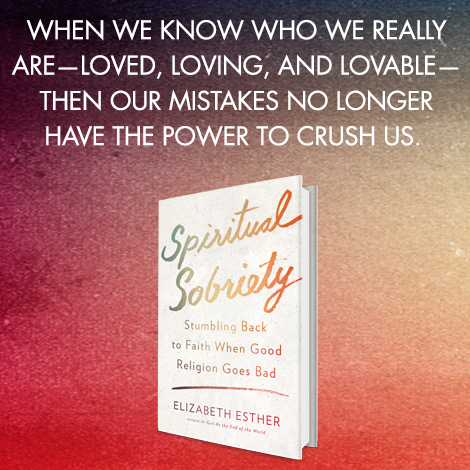Part Two of Two Part Series
“To everything there is a season, A time for every purpose under heaven:
…..“A time to kill, And a time to heal; A time to break down, And a time to build up;”
Ecclesiastes 3:1,3 NKJV
This is my story of healing my heart and soul and rebuilding my mind and emotions….
For me recovering from spiritual abuse was very personal and private. I knew I needed healing and I needed to repair my relationship with God, which was my first priority. The problem was I didn’t know how to begin. So I started working on developing my relationship with God through conversations with God. To me this was more than just prayer like I had done in the past, this was actual conversation and telling Him about everything that I feared, my anxieties, my anger and I didn’t hold back anything. Then I would spend time in reflection, trying to hear his voice, sitting quietly outside on my deck looking at my gardens and letting his nature calm my soul and emotions, then I turned to scriptures and just began reading and meditating on his word. I felt like I was in that place where God was telling me to “Be still and know that I am God” (Psalm 46:10) .
I also read books: False Holiness Standards, Healing Spiritual Abuse, The Subtle Power of Spiritual Abuse, and a few more but I can’t remember their titles. I surfed the internet reading all I could find on the subject and joining support groups. I was not going to a church and had not attended a service in over six months so the guilt was very high. Was it guilt from not attending service or was it the guilt and anxiety because I was enjoying not going?
My daughter and I had tried a couple other United Pentecostal churches but there was nothing there but dried up bones and that was six months ago. I knew I was not going back to the UPC. Been there, done that. But I was still trapped in their legalism of dress and hair, simply because that’s all I knew and the only clothes I had. It had been 32 years that I had been in the UPC. I no longer needed to dress this way but I didn’t know how to take that first step to change and that seemed to be the hardest step to take. Although my daughter wasn’t having any trouble giving up standards and she seemed genuinely happy as she searched for a church. She kept saying, Mom, all I want us to be are normal Christians.
Normal was good I thought, problem was I didn’t know what normal was. I did receive a few emails from my former church friends, asking why I left and I should come back and repent and not backslide and blah, blah, blah. I didn’t respond and I unfriended them because I didn’t need the distraction. It wasn’t like I was friendless; I had a lot of good friends at work, just nobody I could talk to about why I left my church and religion.
One of the first things I did was purchase a new Bible, a NKJV, and began to study it with an open heart and mind. I wanted my quest in God’s word pure and fresh so I could see His grace. It was like the word came alive to me and the first scripture I read was: “I am the LORD, that is My name; And My glory I will not give to another, Nor My praise to carved images. Behold, the former things have come to pass, And new things I declare; Before they spring forth I tell you of them.” (Isaiah 42:8-9 NKJV) This gave me a lot of hope that I was still in His will by leaving and searching for truth.
My daughter found a friend, Anita, from Youth Camp online and she explained that we were looking for a church that was “normal” and Anita invited us to visit Crosspoint Church, which was where she went after leaving the UPC. So on Palm Sunday we went and sat in the back row by the door, just in case things got hairy. But from the first beat of the music I could feel the strong spirit of God in a good and loving way; not in a frenzied emotional way. My daughter and I cried all through the service.
When we got in the car to leave, I remember my daughter saying. “Mom did you notice how happy and friendly everybody was?” I told her yes, but it could be a fluke because nobody I knew was that happy about their salvation. Although I saw how Anita was and she was very happy. So we decided to visit again the next Sunday on Easter and bring my granddaughters. The next Sunday was a repeat of the Sunday before and we decided to give it a try and see if this could be our church.
The Sunday following Easter, the church had a ministry fair and I signed up for a ministry called Thyme In A Garden and I registered for a summer ladies bible study to be held in a home close to me. Now I was really putting myself out there because I didn’t know anybody except the associate pastor and his wife and that was only because I grew up with them and my daughters friend Anita.
I’m very thankful for Dave and Ronda because of their wise council to me and the help and love they showed to me during this time. They also had made the same journey I was making. I remember one Wednesday night prayer meeting they both came and prayed for me. None of that grabbing my arms and spitting in my face or yelling in my ears type of praying. They simply put their hands on my shoulders and asked for God to lead and guide me down the right pathway.
After service I asked Ronda how did she overcome the dress code of the UPC? She just smiled and told me I would know when it was time to let go of the past and she assured me when I got rid of the trappings of dress and released the vestiges of legalism, then there would be nothing between God and me except for grace. She said his word would come alive to me like never before because I could no longer hide behind a facade of self righteousness.
A few weeks later I went to my first meeting to Thyme in the Garden and I was a nervous wreck about going into a place I didn’t know. But in I walked and said Hi, I’m Cindy. I was greeted so warmly and friendly by all the ladies and they accepted me right in and I’m still going 6 years later. I met the best group of Christian women that day and they prayed for me after I told them I just left the UPC.
Being a former pastors wife, you know a thing or two about people and of course the shunning and shaming you get when you leave a church. But my biggest shock came from one friend from UPC, we’d been friends for 30 years and I had visited many times since my divorce. She was emailing me at work and I was answering her and I told her that I was going to a new church. She asked me where and I told her and I guess she looked it up online and literally became a wild woman telling me I was backslid if I could go someplace that didn’t teach standards and now I was going to be a reprobate.
Then she finished by telling me we could no longer be friends because we have nothing in common anymore. I couldn’t believe it just five minutes prior to telling her where I was going to church we were chatting away. Now we had nothing in common? I knew I was going to lose friends but I never imagined her. We haven’t spoken since that day and she, along with her family, unfriended me on Facebook. The pain of it still hurts at times but God has given me more friends than I can count now. During this time, I continued to search scripture for reassurance and God never fails:
Do not remember the former things, Nor consider the things of old. Behold, I will do a new thing, Now it shall spring forth; Shall you not know it? I will even make a road in the wilderness And rivers in the desert. (Isaiah 43:18-19 NKJV)
I held on to his promises because I was in uncharted waters.
I again showed up at the home where the summer woman’s Bible study was being done and again God put me in touch with Steve and Helen, former UPC Pastor and wife, who left the organization years ago. God knew exactly who to put me in touch with. I don’t know how many times I’ve called upon them to calm my fears and doubts.
“Who will rise up for me against the evildoers? Who will stand up for me against the workers of iniquity? Unless the LORD had been my help, My soul would soon have settled in silence. If I say, “My foot slips,” Your mercy, O LORD, will hold me up. In the multitude of my anxieties within me, Your comforts delight my soul.” Psalms 94:16-19 NKJV
Steve and Helen prayed for me and with me, gave me scriptures to read and taught me about healing and forgiveness. I told them I wanted to start over as a brand new Christian and they even signed up to take a new Christian Bible study with me.
I started feeling more at peace every time I went to church and finally I felt the freedom to get rid of the old clothes and buy new. My daughter and I had fun shopping and there wasn’t a dress or skirt purchased. My daughter was getting ready to graduate from Beauty School, so I was her model to demonstrate a hair cut. I donated 24 inches of hair to Locks of Love and felt so light and free. I was her model for color demo and she made me a beautiful blonde. I hadn’t felt pretty since my wedding day until that day. I sat and looked in the mirror and cried.
I took the church’s Welcome to the Family class, which is a four week course that explained the history of the church, their beliefs, their staff and what was expected from a new member. Again I had to brace myself against the anxiety, but my daughter took it with me so I wasn’t totally alone. During the first class we found out the church came out of the United Pentecostal Church about 30 years ago and my pastor was also former UPC and that explained a lot of the teaching. It wasn’t legalism at all, it was grace and mercy. It was Christ and him crucified. It was no big “I”s and little “U”s. But it was salvation through faith in Christ Jesus. It was humility and servitude and living within your means. There are no thrones on the platform, the ministers sit with the congregation. They teach commitment, connection and contribution. Everybody dresses casual so all that come feels comfortable. They were answering all my questions one by one. It was amazing and wonderful all at once. I finally felt at home, that I was in a safe place and I had a place where people cared and prayed and loved each other.
My final confirmation that I was in the right place for me came in September at our ladies retreat. My pastors wife wanted all of us to go outside and enjoy nature alone with God and our Bibles. I remember sitting at a small table looking over the lake and asking God one more time, is this the place you want me to be? He replied with his word: “You whom I have taken from the ends of the earth, And called from its farthest regions, And said to you, ‘You are My servant, I have chosen you and have not cast you away: Fear not, for I am with you; Be not dismayed, for I am your God. I will strengthen you, Yes, I will help you, I will uphold you with My righteous right hand.’ “Behold, all those who were incensed against you Shall be ashamed and disgraced; They shall be as nothing, And those who strive with you shall perish. You shall seek them and not find them— Those who contended with you. Those who war against you Shall be as nothing, As a nonexistent thing. For I, the LORD your God, will hold your right hand, Saying to you, ‘Fear not, I will help you.’” (Isaiah 41:9-13 NKJV) With tears streaming down, I lifted up my hands and praised him for always being with me and leading me out of darkness into his marvelous light.
That was six years ago and do I still have anxiety from the past? Yes I do and I still have fear from time to time. And yes I suffered with nightmares for several months, but I put my trust in God and he never failed me.
Last year I was reconnected to a dear friend from the church we had pastored and we’d been apart 18 years, but our friendship is closer now than ever before. She has been delivered from legalism and spiritual abuse.
A few months ago I was able to call my ex-husband and forgive him for everything and he started crying and saying he was sorry for what he did. We talked for over an hour about our children and grandchildren.
My daughter met a really nice man and they were married two years ago. She has 3 girls and he has 2 girls, so now I’ve been blessed with 5 beautiful granddaughters.
Has it all been a bed of roses? No it’s not, life is still life. I lost my father and step mother within two days of each other through cancer and pneumonia in October 2011. My mother has been diagnosed with Alzheimer’s disease and is in stage 5-6 of the 7 stages. I was diagnosed with Parkinson’s disease in 2011 and had to retire in 2016. And I lost a dear uncle to cancer last year (2016). But through all the trouble and tribulations, God has always been there with a comforting word and prayers, visits and ministering from my church friends helped us get through those tough times. There’s been good news, too. My aunt and cousin have accepted the Lord into their hearts and attend church with me. I helped a dear friend escape from my previous church and she is healing and attending Crosspoint, along with her grown children, who were also spiritually abused and hurt. My dear mama has also accepted the Lord.
Yes, when you’ve been in an abusive church for any length of time, things are killed in your heart and soul and things are broken down in your mind and emotions. Eventually you become spiritually crippled and emotionally damaged.
But the Lord gives us a time to heal and a time to build back up. It does take time and patience and a renewed walk with Jesus and the right church and people. And a whole lot of trust in God. It wasn’t easy and it has taken me six years to get this far, but with God all things are possible.
Therefore, if anyone is in Christ, he is a new creation; old things have passed away; behold, all things have become new. Now all things are of God, who has reconciled us to Himself through Jesus Christ, and has given us the ministry of reconciliation, that is, that God was in Christ reconciling the world to Himself, not imputing their trespasses to them, and has committed to us the word of reconciliation. II Corinthians 5:17-19 NKJV
********
Shop at our Amazon store! As an Amazon Influencer, this website earns from qualifying purchases.









